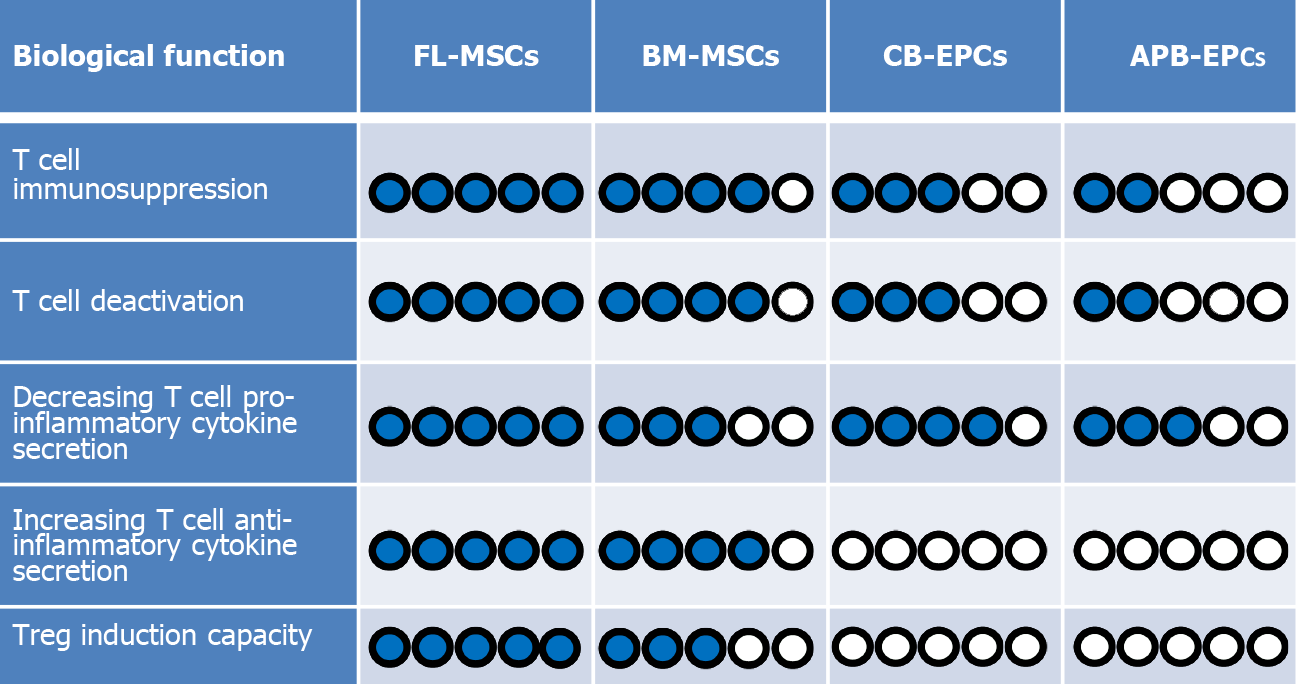Copyright
©The Author(s) 2021.
World J Stem Cells. Aug 26, 2021; 13(8): 971-984
Published online Aug 26, 2021. doi: 10.4252/wjsc.v13.i8.971
Published online Aug 26, 2021. doi: 10.4252/wjsc.v13.i8.971
Figure 2 A comparison between immunoregulatory functions of mesenchymal stem cells and endothelial progenitor cells.
According to our evaluations, among the four cell types [fetal liver (FL) derived mesenchymal stem cells (MSCs), bone marrow-derived (BM)-MSCs, cord blood-derived (CB)-endothelial progenitor cells (EPCs), and adult peripheral blood-derived (APB)-EPCs]. Fetal liver-derived (FL)-MSCs are the most immunomodulatory cells because they: (1) suppress T cell proliferation; (2) decrease T cell activation phenotype; and (3) decrease T cell secretion of proinflammatory cytokines. On the other hand, they could more efficiently increase: (1) the secretion of anti-inflammatory cytokine; and (2) the induction of regulatory T cells (Tregs) more than the other cells. Therefore, we have considered FL-MSCs as the reference (5/5 blue points) regarding the measured criteria and compared the capacity of the other cells with them. In the case of CB-EPCs and APB-EPCs, because we did not notice any Treg induction or elevation of anti-inflammatory cytokine secretion we attributed a 0/5 score. Blue circles represent elevated levels while white circles represent the absence of the effect.
- Citation: Razazian M, Khosravi M, Bahiraii S, Uzan G, Shamdani S, Naserian S. Differences and similarities between mesenchymal stem cell and endothelial progenitor cell immunoregulatory properties against T cells. World J Stem Cells 2021; 13(8): 971-984
- URL: https://www.wjgnet.com/1948-0210/full/v13/i8/971.htm
- DOI: https://dx.doi.org/10.4252/wjsc.v13.i8.971









